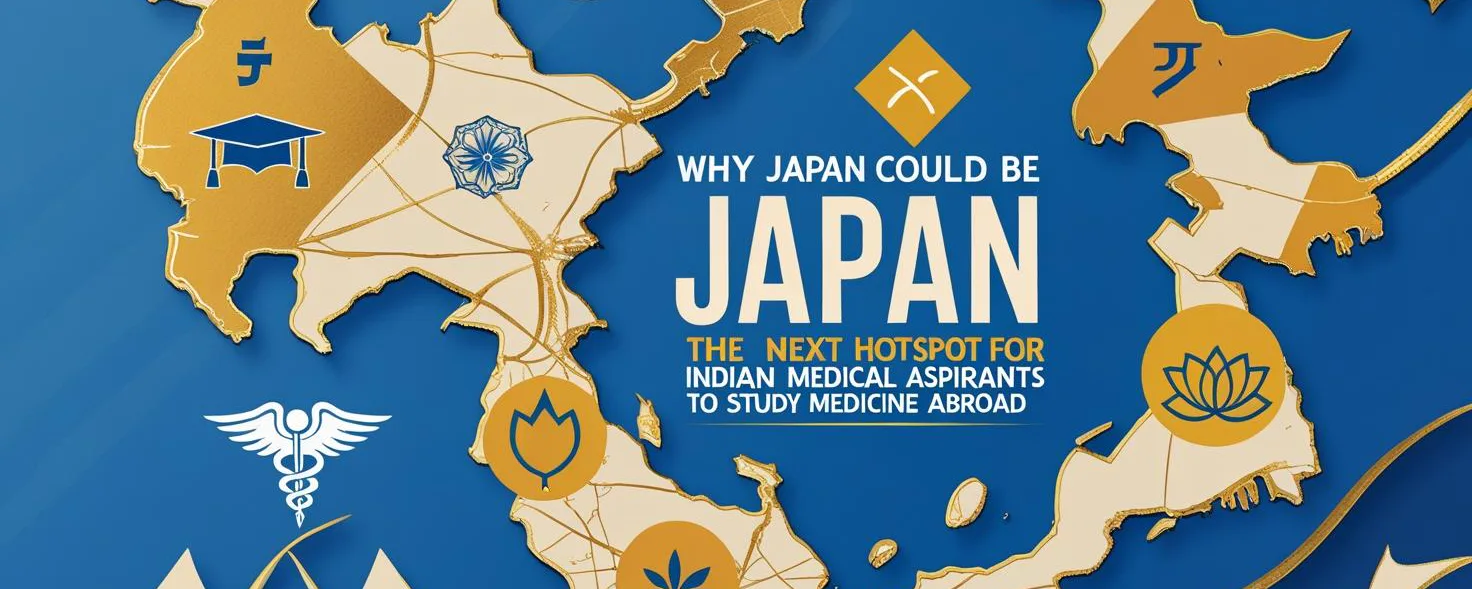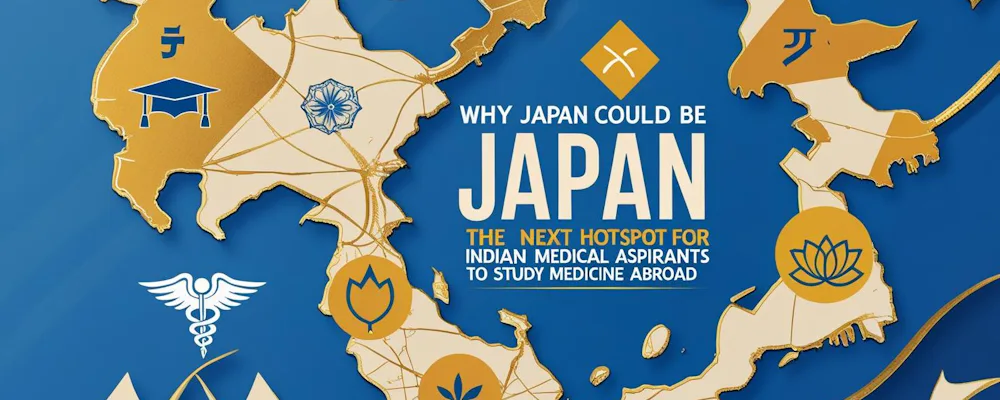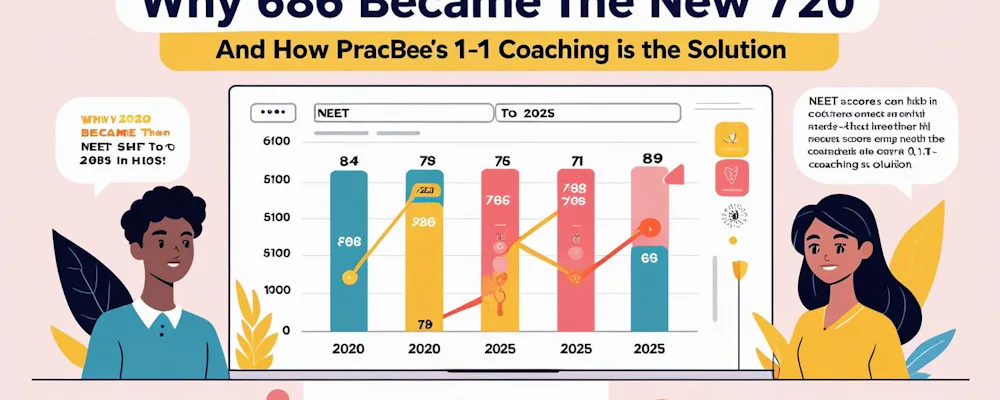
The NEET UG exam is a battleground for millions of aspiring doctors in India. While the competition is fierce, have you ever considered looking beyond traditional choices and exploring a land known for its technological prowess, precision, and rich culture? It's time to talk about Japan. Amid the challenges of securing an MBBS seat in India, Japan is gaining traction among NEET-qualified students as a promising alternative for medical education abroad. Japan, with its world-class universities and global healthcare reputation, is rapidly emerging as a prime destination for MBBS aspirants. If you're a NEET 2025 aspirant with a global mindset, this guide is for you. We'll break down everything you need to know—from eligibility and top universities to the cost of living and future career paths. The Rising Popularity of Japan Among Indian Medical Students With over 22 lakh students competing in NEET UG 2025 for a limited number of MBBS seats in India, the race is tougher than ever. Traditionally, countries like Russia, Ukraine, and China have led the pack for overseas medical education, but Japan is now grabbing attention with its: High-quality education and globally respected medical programs. Strong student support and focus on innovative healthcare sectors. Explosive growth in international student enrollment—up by 20.8% in 2023 and another 21% by May 2024. Why Choose Japan for Your Medical Degree? Before we dive into the nitty-gritty, let's look at why Japan is rapidly becoming a sought-after destination for medical studies: Advanced Medical Technology: Japan is at the forefront of medical research and innovation. You'll learn using state-of-the-art equipment and techniques. World-Class Education: Japanese universities are globally renowned for their high academic standards and rigorous training. Safety and Quality of Life: Japan is consistently ranked as one of the safest countries in the world, with a high standard of living and excellent public transport. Global Recognition: A medical degree from a top Japanese university is respected worldwide, opening doors to a global career. Cultural Immersion: Experience a unique blend of ancient traditions and futuristic modernity, from serene temples to bustling cityscapes. How to Pursue MBBS in Japan: Step-by-Step Guide Getting into a Japanese medical school is a challenging but rewarding process. Here’s what you need to have on your checklist: Academic Requirements: Age: You must be at least 17 years old. Education: You must have completed 12 years of schooling (10+2 or equivalent). Subjects: You need a strong background in Physics, Chemistry, and Biology (PCB) with a minimum score of 50-60%, depending on the university. Fulfill Eligibility and Entrance Requirements: This is the most crucial part. Unlike many other countries, admission to a Japanese medical school for an Indian student rests on three key exams: NEET (National Eligibility cum Entrance Test): As per the National Medical Commission (NMC) guidelines, qualifying for NEET is mandatory for any Indian student pursuing medicine abroad. This is non-negotiable. EJU (Examination for Japanese University Admission for International Students): This is the standardized test for international students wanting to study in Japan. It assesses your proficiency in: Science (Physics, Chemistry, Biology) Mathematics "Japan and the World" (a liberal arts test) JLPT (Japanese Language Proficiency Test): This is a deal-breaker. The medical curriculum is taught in Japanese. You will need to prove your language proficiency, typically by clearing the N1 or N2 level of the JLPT, which signifies a high level of fluency. Language Proficiency: While English-medium courses are growing, some programs still require Japanese proficiency. Use the “gap year” after Class 12 to strengthen your English/Japanese skills. Certificate of Eligibility (COE): Obtain this from your admitting institution as the first step to securing your student visa. Secure a Student Visa Apply at your nearest Japanese embassy or consulate after receiving the COE. Demonstrate sufficient funds (personal or sponsorship) for tuition and living expenses. Upon arrival, register for a Resident Card and enroll in the National Health Insurance scheme (covering about 70% of medical costs, with premiums around JPY 1,800–2,000/month). Program Duration & Structure MBBS in Japan spans 6 years: ~5 years of theoretical and clinical training, followed by a 1-year internship. Some universities also offer a foundation or preparatory year, especially for mastering Japanese and bridging academic gaps. Top Medical Universities in Japan for Indian Students Indian students often choose English-friendly and highly ranked institutions: University of Tokyo: Globally renowned in MD research and clinical excellence. Keio University School of Medicine: Multiple English-medium graduate medical programs. Osaka & Tohoku Universities: Leaders in biomedical sciences and nursing. Hirosaki University: Popular for niche specializations and research collaborations. Kyoto University Osaka University Tohoku University Nagoya University Kyushu University and other universities with strong QS rankings Medical Courses, Specializations & Emerging Fields Aside from traditional MBBS/MD tracks, Japan excels in emerging specialties: Global/Public Health Biomedical Science Geriatric Nursing & Palliative Care (in response to Japan’s aging population) Digital Health/Bioinformatics Healthcare Management & Nurse Practitioner Programs (new tracks) Tuition & Living Costs: Budget-Friendly or Premium? Tuition Fees: For national or public universities, the tuition fee is standardized at approximately ¥535,800 per year (around ₹2.8 - ₹3 Lakhs). Private universities will have significantly higher fees. Living Expenses: This varies depending on the city. In major cities like Tokyo, expect to spend ¥100,000 - ¥150,000 per month (around ₹55,000 - ₹85,000). In smaller cities, the cost can be lower, around ¥80,000 per month (around ₹45,000). This covers accommodation, food, transport, and other personal expenses. Scholarships & Financial Aid Opportunities MEXT Scholarship: Prestigious, covers tuition, living stipend, and airfare. JASSO Scholarship: Based on merit/need; offers support for tuition and living costs. University-specific and private scholarships—varied offerings depending on performance and institution ADB-JSP: Supports students from developing countries, covering tuition, living, and travel Life After Graduation: Your Career Prospects Graduating from a Japanese medical school opens up a world of opportunities. Practice in Japan: To practice medicine in Japan, you must pass the National Medical Examination of Japan. With a high demand for healthcare professionals, this is a fantastic career path. Return to India: You can return to India and practice medicine after clearing the Foreign Medical Graduate Examination (FMGE), which will soon be replaced by the National Exit Test (NExT). Work Globally: Your Japanese medical degree will be a powerful asset if you wish to work in other countries like the USA, UK, or Australia (after clearing their respective licensing exams). Is Japan the Right Choice? Absolutely—if you're ready to invest in a high-quality, research-rich medical education at a reasonable cost, while navigating language and cultural challenges. NEET-qualified students eager for global exposure, early clinical training, and distinguished career possibilities may find Japan a compelling alternative to crowded Indian medical colleges. Why Choose Japan for Medical Studies World-class infrastructure and cutting-edge research. Increasing availability of English-medium medical programs. Strong safety net: National Health Insurance and supportive international student policies. Unique opportunities in aging healthcare and pioneering medical specializations. An ideal blend of tradition and innovation for medical careers.

Thinking of studying Medical abroad? Discover why Japan is the next hotspot for Indian medical aspirants with top institutes & affordable costs.

High scores in NEET 2025 are the new norm. See why 686 is the new 720 & crack the exam with PracBee's proven 1:1 coaching solution.

Predict your NEET 2024 rank accurately with our marks-to-percentile calculator. Make informed decisions about your medical college choices.

Master Simple Harmonic Motion & Oscillations concepts for JEE Main 2025! 15 essential problem types with solved examples, past papers & practice tests. Class 11 Physics prep.